What is your reaction to criticism? Does it make any difference who is doing the criticizing? There are those who seem to always be the target of criticism. No matter what the decisions or actions involve, criticism follows them like a rain cloud. But, enough about me. Today's lesson involves a whole nation being criticized and from an outsider. While we may be tolerant and sometimes even appreciative of criticism from close friends or loved one's, hackles are raised when the criticism comes from an outside source. We might make fun of our southern accent or traditions, but, we bristle when a "yankee" does it. There is that protective nature in us that defends shared culture and religious experiences. We in turn have to be sensitive that a little joke about Pungo may offend some one we are talking too.Who is Amos and why are we studying him? All that we know about Amos is contained in this one book. No where else in the Bible is he even mentioned. So what do we know about Amos? The first thing we have to understand is that at that time there were two Israelite kingdoms. Israel in the north consisting of eight of the original tribes and Judah in the south consisting of two tribes.
(1) Amos tells us that he spoke during the reign Uzziah king of Judah and King Jereboam II of Israel. Uzziah was king from 783-742 BC and Jereboam II ruled from 786-746 BC.
(2) Amos came from the small town of Tekoa which was about 12 miles south of Jerusalem. In fact the ruins of the town exists to this day and is settled by Arabs. On the north, west and south were a range of limestone hills. To the east the land slopes down to the Dead Sea about twenty miles away. In that twenty miles the land drops about 4000 feet. All the land surrounding Tekoa was referred to as the wilderness because It was a bleak area where only a few patches of fertile land provided the people with a means for staying alive. To be quite honest, not too many people wanted to live in an area where the chances of making a living from crops were poor, so the ones who did were pretty hardy souls who weren’t too influenced by neighboring non-Jewish y people who worshiped other gods. Because of this, the true worship of God remained intact and important to the residents. That’s probably why God chose an occupant of this place to take His message to the kingdom of Israel.(3) Amos was a shepherd, but on the side took care of sycamore trees which bore a bitter fruit something like a fig. He was a working man who probably was employed by who ever would pay him. Being located in such an unfriendly desert area, he wasn't as sophisticated as those who lived around Jerusalem. But it is evident from his writings that he was no dummy concerning Jewish law and traditions. Above all, coming from such harsh surroundings, he appreciated the need for people being dependent and responsible for one another. When our son lived in Montana, we saw this same value system. You had to maintain a good relationship with your neighbors, because miles separated neighbors and in an emergency they would be the ones who could most quickly respond to a need. This value system made Amos the right man to carry God's message to Israel.
(4) Amos was not a professional prophet. He wasn't even the son of a prophet. If anything, he describes himself as a part time prophet.
(5) In all likelihood his message was given over the period of a few weeks, certainly not more than two years. In chapter 1 Amos pin points when he received the prophetic message as two years before the earth quake. We do know that earth quakes did take place in that area. Josephus the Jewish historian of the first century described a great quake which occurred in 31 BC not to mention the quake that took place during the crucifixion of Christ. The people then knew exactly which earth quake he was talking about, but it wasn’t until a few years ago that archaeologist found evidence that a severe earth quake in 760 B.C. caused a lot of damage to the area. It must have been a big one because 240 years later the prophet Zechariah referred to it. If this is the earth quake Amos is talking about, then he received God’s message in 762 B.C. which fits in with the reigns of King Uzziah and King Jereboam II.
(6) The book itself is kind of a "downer". There doesn't appear to be much hope held out for Israel.
So Amos was from a small town just south of Jerusalem. That puts him in Judah and yet his message is delivered to Israel. Why do you suppose God would use a man from the southern kingdom, who wasn't even a man schooled in prophesy, to bring His word to the northern kingdom?
What was the northern kingdom like in Amos’ time? Jereboam II was king and the country was prospering. Jereboam II had increased Israel's borders and influence. But with the building of the kingdom as a major trading nation, something had been lost. Originally, the country had been a nation of primarily farmers and shepherds. Everybody was in the same boat and for all practical purposes it was a classless society because there was only one class - middle. As the economy turned more to trading and general commerce, business leaders arose. These people didn't work with their hands but depended upon other's to do the manual labor for them. As the economy grew, these business leaders became more and more obsessed with making money. In their drive for more and more wealth, profit became the great motivator and to increase the profits, those who worked for them were exploited. The kingdom had gone from all middle class to two groups - the “haves” and the “have nots”.Conditions for the "have nots" had become terrible. Men with little or no income had become slaves in order for others to become rich. And these rich men had become powerful people. They lay around on rich couches inlaid with ivory eating and drinking all day long. You kind of get the picture of fat, weak men with grease dripping off their chins as they devour the best of the crops, small green figs and juicy grapes, washing down these delicacies with the best wines. I mean Taylor’s Golden Sherry. All the while their workers went hungry and their children cried at night because their stomachs were empty. There wasn't a vice that the rich men didn't try out and try out often.
The worse thing was they made a mockery of worshiping God. They made donations and sacrifices not as thanks to a generous God, but as good PR. It was an investment. The donations and sacrifices would be charged off as a business expense. If pressed, they would even admit that it would be OK with them if nobody went to the Temple on Saturday or the laws dealing with working on the Sabbath were repealed. Then business could continue seven days a week and more money could be made. Oh they made a big public show about religion, but many of them included the worship of Baal with the worship of the Lord. After all, they had to do business with the merchants of Philistia and Cannan and it wouldn't help in the bargaining if those merchants felt that their gods weren’t being respected by the Israelite merchants.
With all this going on, why does God pick Amos and not someone in Israel? To be painfully honest, there was only a small remnant that still worshiped God and God alone. All the priests and professional prophets had joined the money crowd. Amos possessed a value system which was just right for the message. You see, character did count. His secluded life with it's emphasis on interdependence along with his love for the true God. Even the lack of formal training was an advantage. To the trained priesthood, working in the Temple was just another good paying job.
Before going any further, we need to remember what was meant by prophet in the Old Testament. What was a prophet? While prophets did in some cases predict events that were to take place, that wasn't their primary duty. That duty was to tell the people what God wanted them to hear. In other words they were spokesmen for God. The very word "prophet" comes from a Greek word meaning “one who spoke for the gods”. The Hebrew translation of the Greek word for prophet means “one who pours forth the divine will”. Prophets commented on events happening in the present and gave reasons for the events as they impacted on the people and God.
Amos gets God’s word and heads north to Israel. He gets to Bethel which is just on the other side of the border between Israel and Judah. Bethel was about 10 miles north of Jerusalem, so Amos traveled about 22 miles. There is no account about the trip, but since Amos was traveling on foot, it must have taken about two or three days. At Bethel Amos stops and doesn’t go any further into Israel.
Why stop at Bethel? In Bethel was one of the two temples Jeroboam 1 had set up during his reign as the first king of Israel. Here is what happened. Jerusalem, where the big temple was located, was in Judah, not Israel. After the nation was split into two kingdoms, a lot of people in the northern kingdom still went down to Jerusalem to worship. Jeroboam 1 was afraid that eventually, the people being constantly exposed to people and priests in Judah, would demand that the two kingdoms be united and he would be out of a job. This fear had merit since Jeroboam wasn’t descended from David, but Uzziah was and God’s covenant was through David. Jeroboam 1 picked Bethel as one of the worship centers because it was right on the border with Judah, so people would stop there and make their sacrifices rather than travel for another day to get to Jerusalem. The second temple Jeroboam 1 set up was in the most northern part of the kingdom in Dan. Even though Jeroboam had a temple to rival the one in Jerusalem, the Temple in Jerusalem had something Jeroboam’s temples didn’t have - the ark of the covenant. To account for that, his temples had a golden calf as a substitute for the ark of the covenant. Can you imagine? A golden calf! The ark of the covenant wasn't the only thing missing in Jeroboam's temples. Obviously, Moses' story about Mt. Sinai and the golden calf was missing too.In Chapter 1 Amos tells the people in Bethel about God’s punishment for Damascus. It accused Damascus of threshing Gilead with implements of strong iron. In those days, farmers would cut their harvest and with it laying on the ground, a threshing iron would be dragged over it. This threshing iron was a wooden post with iron protrusions hammered into the post. As it was dragged over the harvest, the the iron protrusions would separate the grain from the chaff. Amos was using this description to illustrate cruel Damascus had acted when it had conquered the peoples of Gilead. Damascus literally ripped the best from Gilead. This was particularly bad since Gilead was part of Israel. So what will happen to Damascus? It would be judged and punished. Their king would be destroyed and their people sent into exile. This prophesy came to true when the Assyrian army invaded Damascus.
The message for Israel was that a country that had beaten them and taken some of their land would get it's comeuppance. How do you think the people reacted? “Right on. Say, Amos, you're alright. You really know your prophesy.” Probably, some of them would get together and talk about this prophesy. "Did you hear what this new prophet, Amos, said about Damascus? Those dirty rats are going to finally get what they deserved. That will teach them to mess with God's people. I'll tell you, if Amos keeps this up, we'll have to put another star on the sidewalk of Bethel Boulevard." Maybe Amos intended to start his prophesy with a popular prediction in order that the people of Israel would approve and then be more responsive when he got to the meat of his message. As of yet, the people don't understand their treatment of God is at the heart of the message.
Amos has started out dealing with judgement and punishment of a country that does not worship the true God, but God is going to punish that country not one of their gods. That means that God is not only the God of Israel but of all countries whether they recognize Him or not. God was the God of Gentile and Jew alike, therefore the actions of pagan Damascus fall under God's authority just as much as the actions of Judah or Israel. Just what was it that caused God to punish Damascus? Because they invaded land occupied by his chosen people or because of the cruelty they employed in conquering Gilead? Cruelty was given as the reason and this would be a theme used by Amos in all of his prophesies. God will not condone cruelty by one person against another, because God’s message has always been to love one another.
Amos then takes aim on Gaza and Tyre. Again both of these places were inhabited by Gentile peoples being judged. In Amos' prophesy, the complaint is that the city state of Gaza, after conducting raids on small villages in southern Judah, sold the captured people into slavery. In fact it would appear that the sole purpose of the raid was to get slaves to be either used in Gaza or to be sold on the international market. Tyre was a wealthy and powerful city state on the Mediterranean about a hundred miles northwest of Jerusalem.Tyre was accused of trading in slaves just like Gaza. In fact Tyre had a reputation as a center for the slave trade. Sometimes we think of slavery in terms of our own experience leading up to the war between the states, but, the practice goes far back into history and, although condemned by the U.N. exists even today. For treating people as slaves, Gaza and Tyre will be punished.After this message, the people were really getting into it. Amos had a rapt audience. After all, he was describing the destruction of neighboring countries who were making things tough on making big profits in Israel. They must have begun to feel pretty smug about how they had God on their side.
The next message dealt with still another county that had given them grief, Edom. Edom lay to the east of the Dead Sea and is condemned because they raised their weapons in anger against a nation which was related to them. Edomites were descendants of Esau who was Jacob's twin brother. There should have been at least a little bit of family love between the two nations. Apparently, this was not the case. Edom appears to have been extremely cruel in the way it treated the people in Judah. Again the Assyrians would conquer this land and send it's people off in exile.
Ammon is dealt with next. Ammon was also east of the Jordan but further north than Edom. It is condemned for the inhuman acts it performed in warring against it's neighbor, Gilead. One of the atrocities they are accused of is ripping open the stomachs of pregnant women and killing both the woman and her unborn child. Unfortunately it was not uncommon in those days to do such a brutal act on a conquered people. By doing this, the current generation was gotten rid of as well as any future generations. These very same acts took place during the holocaust and today by Islamist extremist. Again the country would be destroyed.The people were ecstatic. All of their enemies, at least the ones surrounding them, will be destroyed. If they played their cards right and made the right sacrifices. They might even be able to make a buck out of God's destruction of these countries.
Moab was next on the agenda. The case of Moab was a little different. Moab was north of Edom on the east side of the Dead Sea. It is condemned for invading Edom and destroying the tomb of a king. The king's bones were burned. Now this doesn't sound like a big deal to us compared to what the other nations had been condemned for doing. At best, this would have been described as a sacrilege. We know that in ancient cultures the care for dead kings was important. This act by Moab wouldn't increase their victory. It had the only effect of humiliating and demoralizing Edom and increasing their sense of lost. It desecrated something that they held sacred. But why all of the tears? After all, Edom was condemned in an earlier message. I think there are two reasons:
(1) Once again it was an act which in it's day was meant to emotionally hurt and disable people.
(2) To again illustrate that God deals with Jew and pagan Gentile alike. Again, God’s judgement is consistent and His power and authority are not limited to the Jewish states.
The people must have been confused with this latest word. They really didn't care what happened between two gentile nations and probably in their hearts sided with the actions of the Moabites. But Amos has been on target with all of the other enemies of Judah and Israel, so one slip will be forgiven. Little could they suspect what the next word would be. And that’s where we pick up the message.
Amos 2:4 Thus says the Lord: For three transgressions of Judah and for four, I will not revoke the punishment; because they have rejected the law of the Lord, and have not kept his statutes, but have been led astray by the same lies after which their ancestors walked. 5 So I will send a fire on Judah, and it shall devour the strongholds of Jerusalem."
Thus says the Lord: For three transgressions of Judah and for four, I will not revoke the punishment." First of all, this was exactly how Amos started the prophesies dealing with the pagan Gentile countries. Not a good sign. Saying “for three transgressions and for four” doesn’t mean that those were all of the transgressions or sins. This was a poetical way of saying “For a lot of Transgressions”. These words must have hit the Israelites like a ton of bricks. This is the same way all of the other prophesies had started that punished so harshly the Gentile states. “It must have been a slip of the tongue. Amos will now correct himself and condemn, maybe, Egypt or some other nation causing us problems.” Perhaps Amos paused to let these words sink in. There must have been a rustling in the crowd. A shifting of feet in the dust waiting for the revision and apology. When it came, they would laugh nervously and pat Amos on the back and cheer as another enemy is promised to be brought to it's knees.There is no mistake. This time it is Judah -. Jews like them. Part of the chosen people. They glance at one another, questions in their eyes. Then it dawns on them. This is God pointing out that they, Israel, will be the one true chosen people. Poor Judah. They must have blown it.
Judah's crimes are very much different from the crimes of the other nations. What are they condemned for? Rejecting the law of the Lord. They substituted lies for the truth and then believed the lies. Now this doesn't seem fair. Judah isn't accused of dealing in slaves or butchering pregnant woman or even desecrating graves. They are guilty of the freedom to be thinking religious people. People who have changed the attributes of God to agree with what they have intellectually determined as truth. God has to be in step with the times. What He might have done a thousand years ago, he certainly wouldn't do now. So, lets just change what his prohibitions were then and make them acceptable to a new political and culturally diverse society. Sound familiar?
What will be Judah’s punishment? Jerusalem will be destroyed by fire. Ooh. Amos is getting too close to home with all this condemnation of Judah. Well as long as he stops now, that star will still be implanted in the sidewalk. But, is Amos finished?
Amos 2:6 Thus says the Lord;: Four three transgressions of Israel and for four, I will not revoke the punishment; because they sell the righteous for silver and the needy for a pair of sandals— 7 they who trample the head of the poor into the dust of the earth, and push the afflicted out of the way; father and son go in to the same girl, so that my holy name is profaned; 8 they lay themselves down beside every altar on garments taken in pledge and in the house of their God they drink wine bought with fines they imposed.
"Thus says the Lord: For three transgressions of Israel and for four I will not revoke its punishment." The crowd is in stunned silence. This couldn’t be. God punishing us. No way. Then Amos begins to list Israel’s sins. What were they?
(1) They sold the righteous for silver and the needy for a pair of sandals. What is God getting at? They abused the law. And, it didn’t happen to just the poor. The righteous got the short end of the stick too. The righteous were people who if they were brought to court would be found blameless. But, the courts were bought. Innocent righteous people were found guilty because the judge had been bribed or witnesses had lied. The bribe could be something as petty as a pair of shoes. Now we aren't talking $150.00 pair of Air Jordans, we are talking about a pair of sandals. Corruption in the courts was so ingrained that it didn't cost much to pay off a judge. God had created Israel as a just nation and now the foundations for justice in the nation had been sacrificed to greed.(2) The head of the poor were trampled into the dust. In other words they abused the poor. The push for more and more wealth drove the rich to forget that the weak and poor had to be protected. On the contrary, the poor would be exploited to increase their wealth. Literally the foot of the wealthy would be on the necks of those too weak to resist.
(3) A man and his father would sleep with the same maiden. This is not meant that there was only a generally moral decay in which prostitutes were shared by father and sons, but, that the father and sons went in to temples of Baal and as an act of religious worship had sexual relations with temple prostitutes. Or they would force a slave girl to do what they wanted. The bottom line - they even abused religion.
(4) They Lay down on garments taken in pledge. Garments taken from the poor as collateral for a loan was worn into the temple. These garments were supposed to returned at night fall according to Mosaic law, but this law was deemed out of date. Another case of abusing religion.
(5) They got drunk in the Temple. In addition to forgetting their teaching about sex, these same people would participate in drunken parties in the name of religion. Wine that had be received as payments from fines was drunk in the temple. Religion is again abused.
Amos paints a pretty bad picture of life in Israel. A corrupt society that has abandoned the teachings of their fathers in order to gain material wealth.
As this book progresses, little hope is held out for Israel being delivered from this punishment. What is the root sin that caused all of the punishments to be declared? Treatment of their fellow human beings. Amos calls our attention to God's desire that the poor and needy be taken care of. That you don't hurt or exploit your brother. If we have been blessed, it is we who bear the responsibility for caring for his children who are suffering.
Prayer: Heavenly Father, awake in us the need to care for these our brothers and sisters who are hurting and lost. May our loving kindness spare us from Israel’s fate.
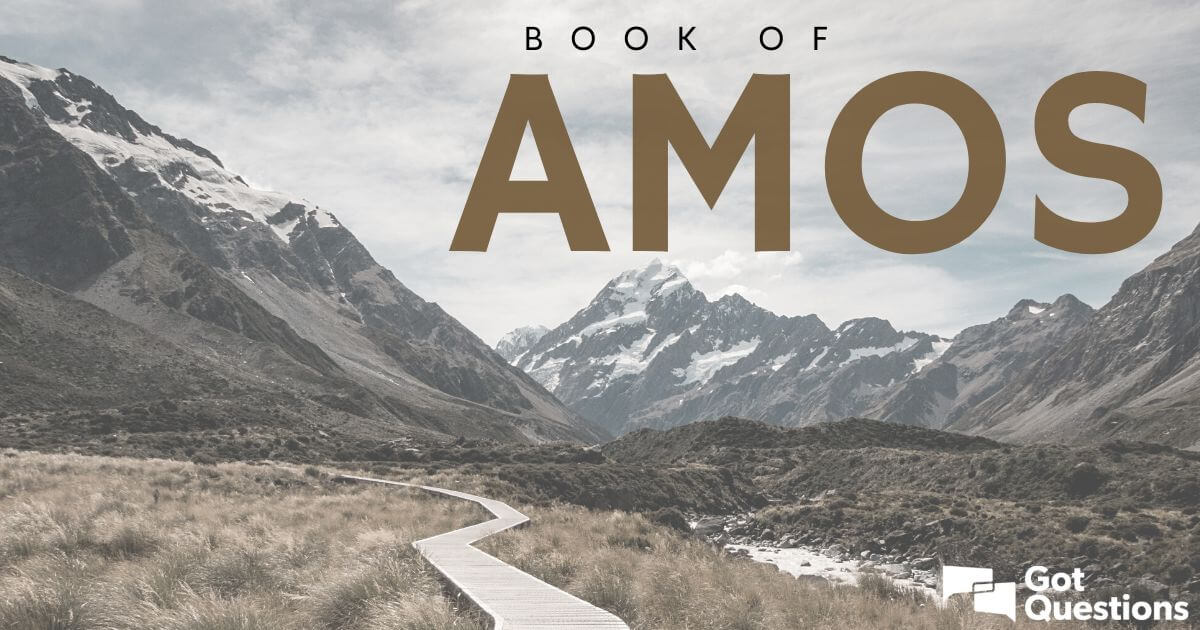
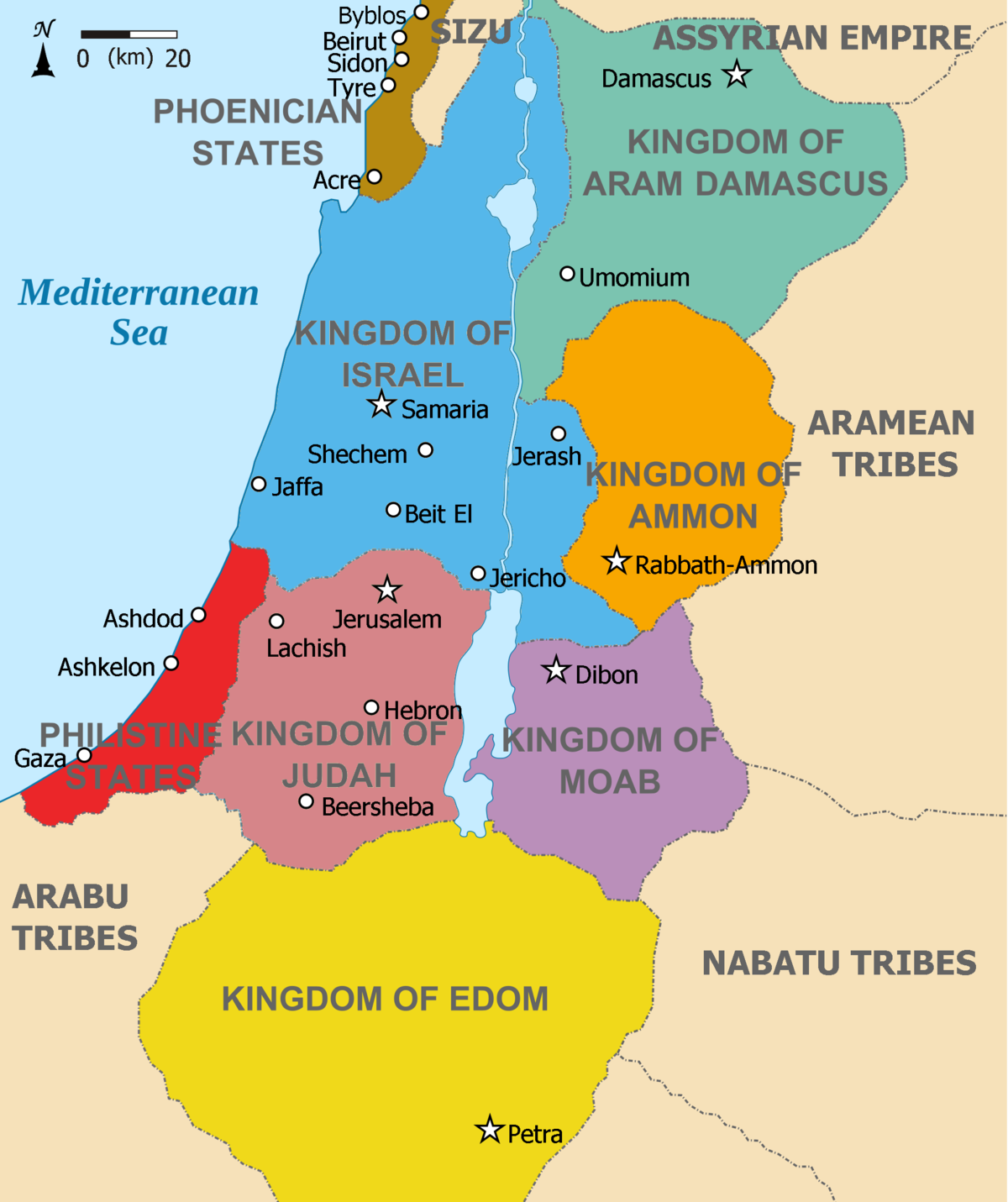
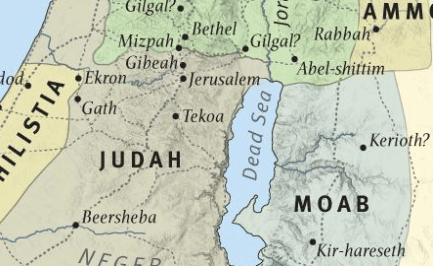



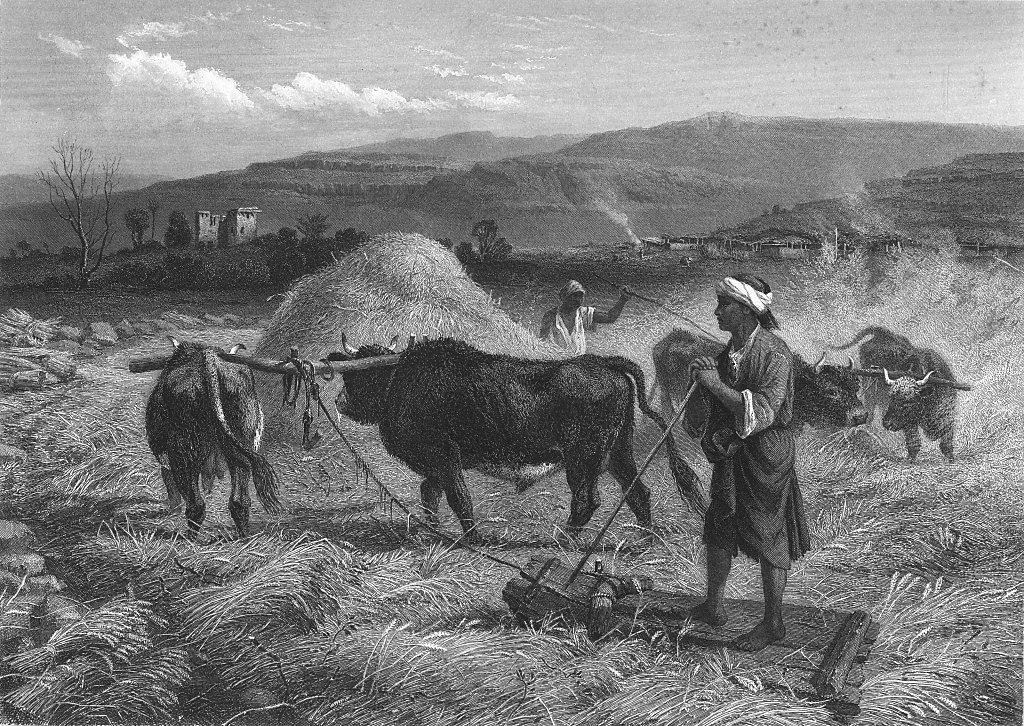
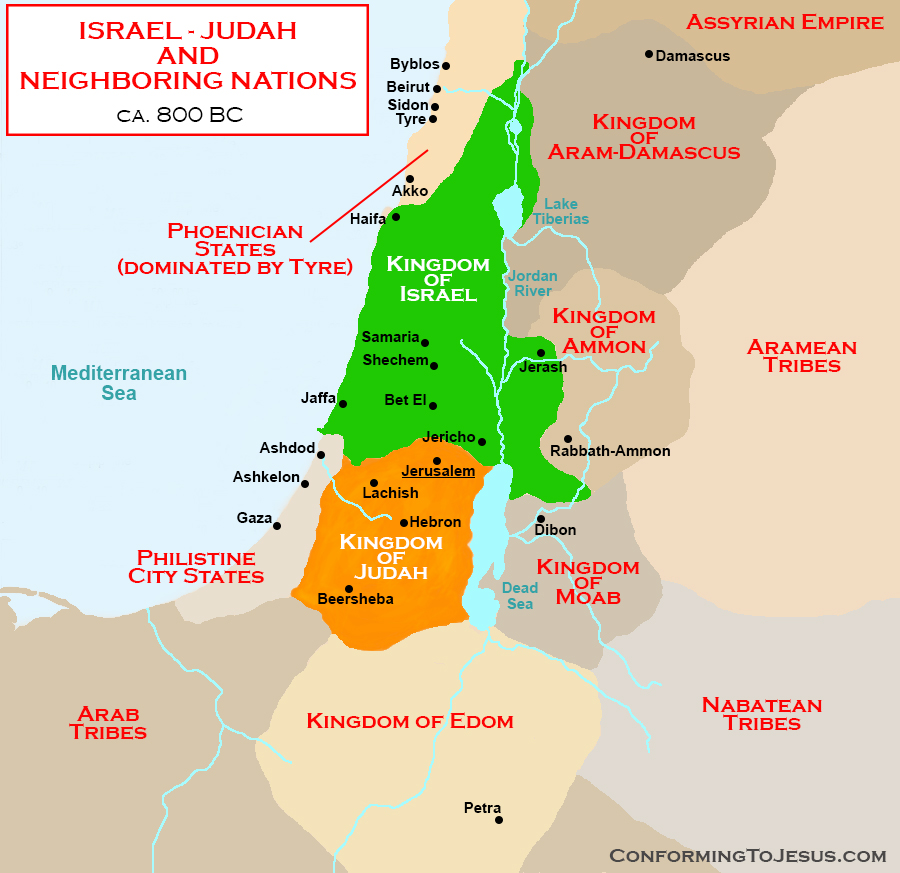
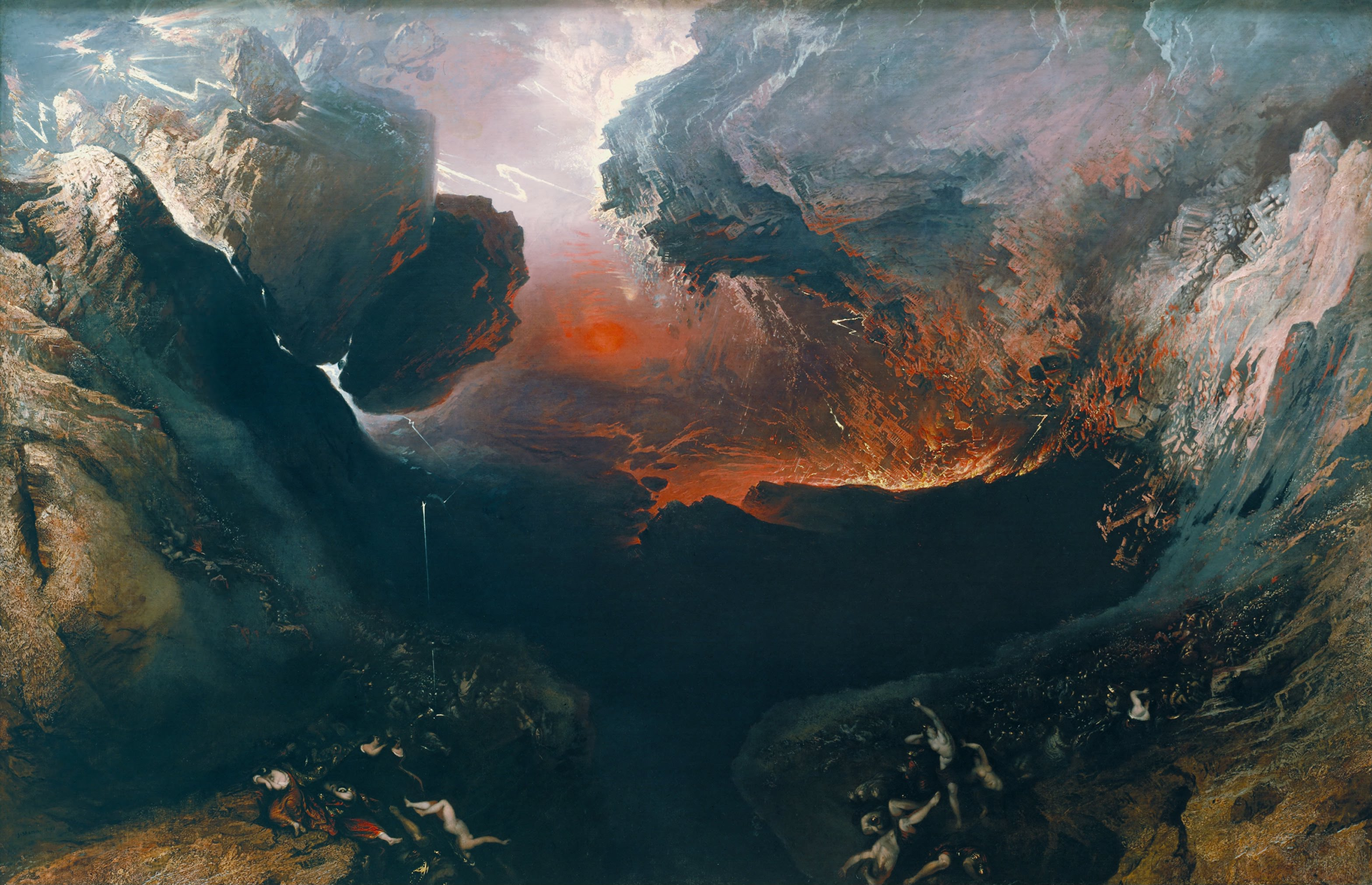

No comments:
Post a Comment